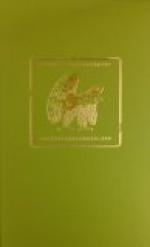The attorney smiled. “This is a trial case,” he began. “A dozen others hinge on it. I was warned to be prepared for anything; so, when my attention was called to that article in Sampson’s Magazine, my suspicions were instantly awake. It looked much like blackmail and, in connection with another story I heard in circulation at Washington, seemed a systematic preparation to attack the Government’s witness. Possibly you do not know it was Mr. Jerold, your legal adviser and my personal friend, who put me in touch with the magazine. You had wired him to find out certain facts, but he was unable to go to New York at the time and, knowing I was there for the week, he got into communication with me by telephone and asked me to look the matter up. The publishers, fearing a libel suit which would ruin them, were very obliging. They allowed me to see not only the original manuscript, but Mrs. Feversham’s letter, which I took the trouble to copy.”
“Mrs. Feversham’s letter?” Tisdale exclaimed. “Do you mean it was Mrs. Feversham who was responsible for that story?”
“As it was published, yes. But Daniels was not a pen name. There really was such a writer—I have taken the trouble to find that out since I arrived in Seattle. He was on the staff of the Press and wrote a very creditable account of the catastrophe on the Great Northern railroad, in which glowing tribute was given you. But since then, and this is what makes the situation so questionable, he has left the paper and dropped completely out of sight.”
Tisdale drew forward his chair and settled himself comfortably. “There is no need to worry about Jimmie Daniels,” he said; “he is all right. I saw him at Cascade tunnel; he told me he was about to be married and go to the Wenatchee country to conduct a paper of his own. It’s too bad there wasn’t another reporter up there to tell about him. He worked like a Trojan, and it was a place to try a man’s mettle. Afterwards, before he left, he came to me and introduced himself. He had been aboard the yacht that day I told the story. He had taken it down in his notebook behind an awning. He told me one of the ladies on board—he did not mention her name—who read his copy later, offered to dispose of it for him.”
“So,” said the lawyer slowly, “you did tell the story; there was a papoose; the unfortunate incident really occurred.”
“Yes,” responded Tisdale, “it happened in a canyon of those mountains across the Sound. You can barely make out their outline to-night; but watch for them at sunrise; it’s worth waiting for.” Then, after a moment, he said, “I told the story to show the caliber of Weatherbee, the man who put himself in my place when the Indians came to our camp, looking for me; but, in editing, all mention of him was cut out. Daniels couldn’t understand that. He said the manuscript was long, but if it was necessary to abridge in making up the magazine, why had they thrown out the finest part of the story?”




